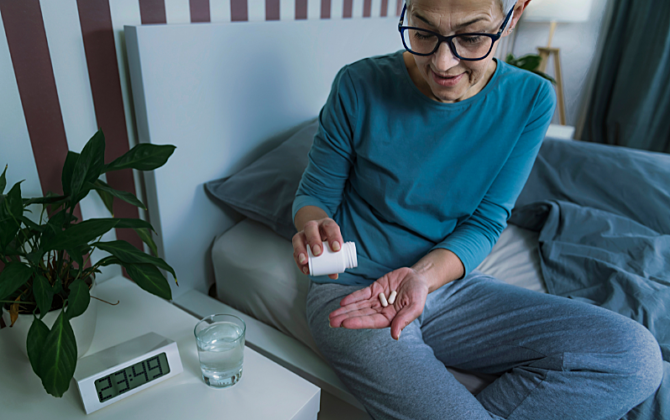Jump to
Obstructive sleep apnoea (OSA) is a common disorder characterised by repetitive narrowing and collapse of the upper airway during sleep. It is associated with daytime sleepiness, neurocognitive impairment, and a variety of adverse cardiovascular consequences. The first line treatment for OSA is continuous positive airway pressure (CPAP) therapy. If tolerated, CPAP is highly effective in reducing sleep disordered breathing events. However, up to 50% of OSA patients are unable to tolerate CPAP therapy leaving many OSA patients without treatment.
Previous studies indicate that in selected obstructive sleep apnea participants a standard dose of a z‑drug can shift the threshold for awakening during sleep (arousal) whilst maintaining the upper airway muscle activity required to keep the airway open. This study aims to investigate the effects of different doses of sleeping pills (Z‑drugs) on how easily people wake up when the airway narrows during sleep, the activity of a major muscle located under the tongue (genioglossus) and obstructive sleep apnoea (OSA) severity and symptoms.

